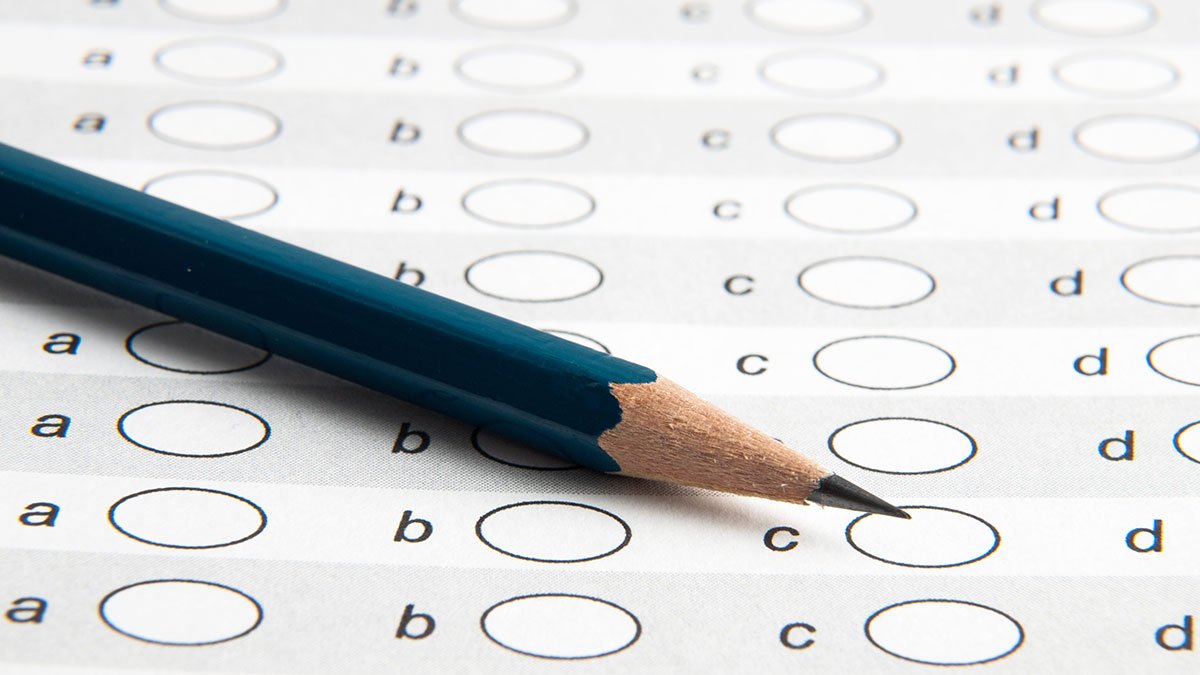
The more often you ask your brain to recall information you’ve learned, the better you’ll retain it. That’s the simple beauty of practice tests
Practice tests are the best tool for familiarizing yourself with the complex subject matter in your courses so that when it’s exam time, you’re well-prepared—and less stressed. Research shows that the act of retrieving information through practice strengthens our ability to remember it again. Meaning, the more often you recall it, the better you’ll retain it. Using practice tests as a study tool will also show you where your knowledge gaps are and where you might need to devote more study time.
Think of it like cooking: You can read a recipe over and over again, even memorize it, but it’s no substitute for actually making the soup. Chances are you’ll remember what worked while you were hovering over the stove, not while your nose was buried in the cookbook.
Taking a practice test is an example of an active learning technique—where you’re actively engaging in the learning process rather than just passively rereading information. It’s an essential study technique for mastering the challenging concepts in many STEM courses. Think of it like cooking: You can read a recipe over and over again, even memorize it, but it’s no substitute for actually making the soup. Chances are, you’ll remember what worked while you were hovering over the stove, not while your nose was buried in the cookbook.
We asked Dien Ho, director of the Honours Program for the School of Arts and Sciences at MCPHS University (Massachusetts College of Pharmacy and Health Sciences), how to use practice problems for maximum effect. Here’s how he says they can help:
Ask your professor for one of his or her previous tests to practice with. That way, you’ll get a better sense of how he or she poses questions. When you understand a professor’s testing style in advance, you can frame your answering style accordingly.
“Practising on these questions helps you formulate a strategy of how you should answer actual exam questions,” Ho says. “For instance, if you know drawing diagrams helps you come up with an answer, it’s good to figure that out before the exam.”
“Practice tests let you know what to expect; they provide a road map of how to study for the exam,” Ho says. “Being prepared for the types of questions and the level of knowledge you’ll need to have will put you in a better frame of mind for the test and ease your anxiety. Because practice tests eliminate the guesswork, you might perform better on the actual test since you already know what to look for.”
Ho urges students not to cram with practice exams the night before—tempting as it is, it’s not helpful to long-term learning, he says. Instead, ask for practice problems in advance and think of the big picture: “What is the level of comprehension I’ll need to have? … Knowing this will help you get a better sense of how to study,” he says.
Practice tests let you focus strategically. Rather than wasting precious study time on trying to absorb irrelevant information, they’ll help you home in on what’s important.
“Professors are often willing to share past exams with their students. My colleagues in organic chemistry, for example, provide past exams to their students as practice tests. Not only do these tests help you anticipate the real thing, they also give you a sense of what would likely not be on the exam. Of course, they’re not going to provide the answers,” Ho says. “In that sense, memorizing answers to the questions is virtually useless.”
Don’t think of practice tests—and the real thing!—as mere requisites, urges Ho. “Exams are not just there to test how well you’ve learned the material, they’re also learning tools. A lot of students see exams as checkpoints; they don’t realize that they’ll actually learn a lot in the process of taking an exam. Most professors know this, which is why they craft questions that lead to more learning,” he says. When you can answer questions thoughtfully, rather than relying on rote memorization, you’re becoming more deeply engaged in the material—and you’re more likely to do well in the class.
HAMNIC Solutions is here to support your graduate journey. Our professional writing and editing expertise helps you manage your academic workload, reduce stress, and focus on well-being for a balanced academic and personal life. Visit HAMNIC Solutions to learn how we can make your student life easier and healthier, enabling you to achieve your academic ambitions without sacrificing a balanced lifestyle.